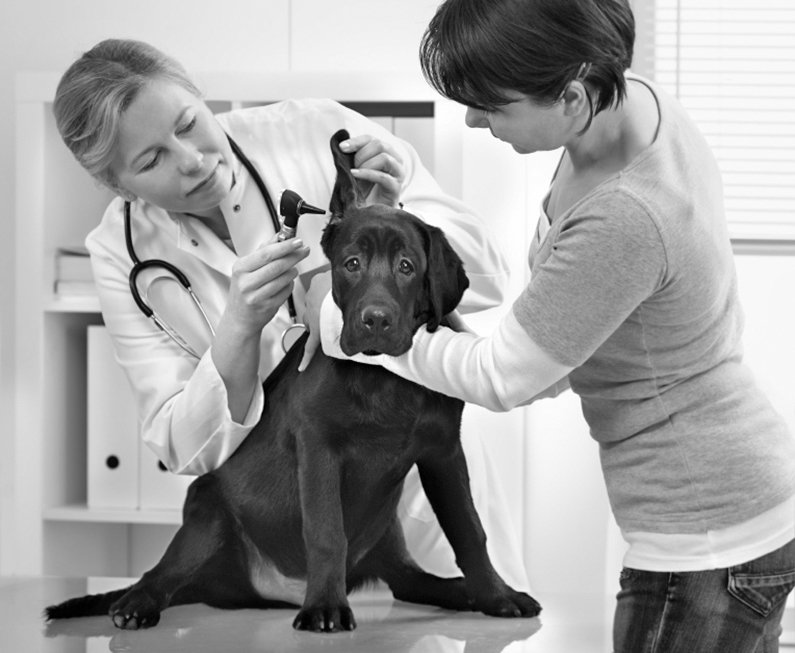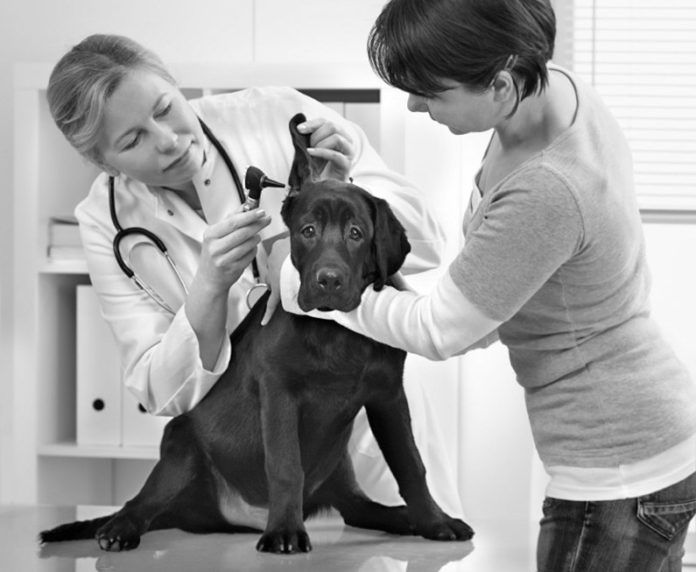Istock


It’s a good time to be a dog. Not only are dogs America’s favorite pet, according to a survey conducted by the American Veterinary Medical Association, they also receive better health care than cats and other companion animals. In 2011, the latest year for which figures are available, dogs represented almost 65 percent of all veterinary visits.
But in these precarious economic times, even dogs have taken a hit. From 2006 to 2011, the proportion of dog-owning households making no trips to the vet at all increased by 8 percent. That translated to almost one in five households with a dog not making at least one vet visit in 2011. Close to 30 percent of those making no visit to the vet said they simply couldn’t afford it. A significant number took their dogs to the veterinarian only if they were sick, not for routine checkups.
Ironically, says Tufts veterinarian Emily McCobb, DVM, while fewer people are taking their dogs for vet visits, “the amount of money people spend at the pet store is not down. It’s actually up,” she says. “You may put off the dental cleaning if you’re on a tight budget, but you’re still going to get your dog a little treat or toy — especially if you feel guilty about not being able to provide everything your dog really needs.”
Playing into people’s decisions to skimp on vet visits, says Dr. McCobb, is the fact that certain vaccinations aren’t required as frequently as was once thought. While some vaccinations must be given every year, others are recommended only every three years after the initial series of boosters. “We have better data than we used to about how long titers last for vaccines,” she says. “And those data show dogs have immunity to various diseases for a longer period of time than was previously believed. It makes sense. We don’t vaccinate ourselves against the same infectious diseases every single year, either.” The downside of that, she says, is that people think, “he’s not due for a shot, so I can skip the hassle of a vet visit.”
Unfortunately, she says, skipping the annual doctor’s visit, or, for an older dog, the semi-annual doctor’s visit — once every six months — sets your dog up for larger, potentially much more expensive problems down the line. “Every time you take your dog to the doctor,” Dr, McCobb says, “you’re investing in the life of your pet.” The vet assesses your pet for lumps and bumps that shouldn’t be there, for oral hygiene issues, for nutrition status. Nutrition status alone is critical. Over the past several years, there has been a 37 percent increase in overweight dogs, which increases their risk for osteoarthritis, diabetes, high blood pressure, breathing problems, and kidney disease. But the vast majority of pet owners believe their animal is of average weight. Indeed, the survey administered by the American Veterinary Medical Association, called U.S. Pet Ownership & Demographics Sourcebook, says that 22 percent of dog owners characterize their pet as normal weight when it is actually overweight or obese. If a vet can call attention to your dog’s weight problem, you’ll spend much less slimming him down with a change in diet than you will treating serious health problems resulting from his packing on extra pounds.
So it goes with all kinds of health issues. Consider that according to statistics culled by one of the big pet health insurance companies, Veterinary Pet Insurance, the average cost to prevent dental disease (presumably with a cleaning) is $172. But the average cost to treat dental disease once it manifests itself is $532 — more than three times the price of prevention. Likewise, it costs an average of $30 to prevent internal parasites, but treating a pet with internal parasites comes to an average of $180 — a six-fold difference.
The bottom line: it may seem like you’re protecting your bottom line by skipping regular vet visits, but you may be wreaking havoc with it. “You’ll economize better, and save money in the long run,” Dr. McCobb says, if you stick with routine health exams, just as you probably do for yourself.
“I think we’re post economic downturn,” Dr. McCobb adds. “But I don’t get the sense that most people feel they’re all set. What you’ll hear from clinicians anecdotally is that people are bringing in their dogs, but they may be putting off procedures. They may want to stage treatment for something, or start with something simple. It’s sad to have to watch folks make tough choices because of finances.”
To that end, Dr. McCobb recommends checking out pet health insurance. For a set amount every month, anywhere from $10 to about $60, you can have many of your dog’s medical needs paid for. “We’re shielded from the true costs of our own health care because we have health insurance for ourselves and our human family members,” she says. “But with pets, for those without pet health insurance, there’s sticker shock.” Even for those with pet health insurance, she points out, the “companies reimburse you for pet care. You still need to be able to cover the costs up front.”
Short of getting health insurance, you can add small amounts to an emergency fund over time — a savings account — to have on hand for a crisis. Some people, she says, “have a credit card just for their pet that they would use only in an emergency.
“Have your limit” in your head before an emergency ever arises, she counsels. “Ask yourself, ‘how much could I realistically spend on my dog if there were some kind of catastrophe?’ You can think more clearly about your finances when you’re not in the heat of a medical crisis.” Otherwise, guilt will play into it, and you may end up spending much more than you can realistically budget for. Our dogs are part of our families, but many owners are unprepared for the high cost of emergency care.
Emergencies aside, take your dog to see the vet for an exam once or twice a year depending on her age, even if there’s not a problem, and even if she doesn’t need a vaccine. You’ll be heading off expensive trouble at the pass.





